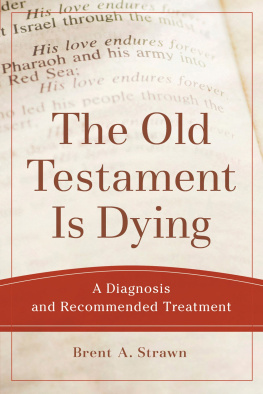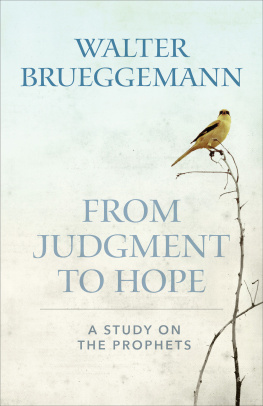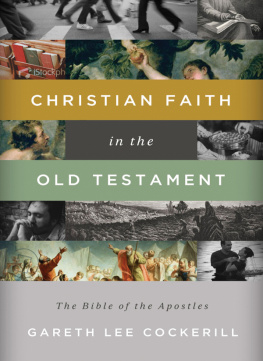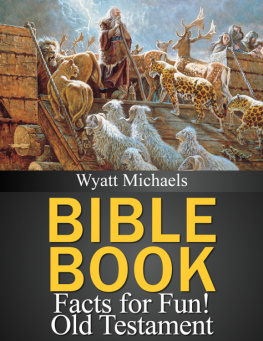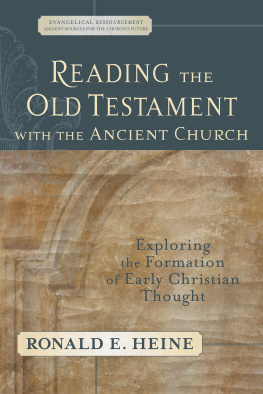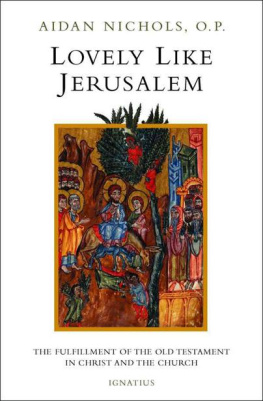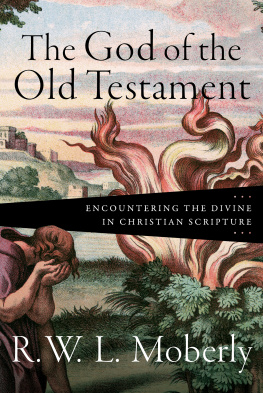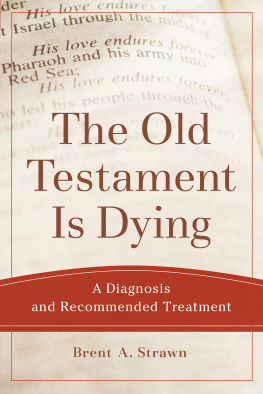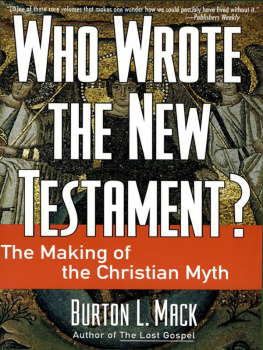
T HEOLOGICAL E XPLORATIONS
for the
CHURCH
CATHOLIC
2017 by Brent A. Strawn
Published by Baker Academic
a division of Baker Publishing Group
P.O. Box 6287, Grand Rapids, MI 49516-6287
www.bakeracademic.com
Ebook edition created 2017
Ebook corrections 07.11.2017
All rights reserved. No part of this publication may be reproduced, stored in a retrieval system, or transmitted in any form or by any meansfor example, electronic, photocopy, recordingwithout the prior written permission of the publisher. The only exception is brief quotations in printed reviews.
Library of Congress Cataloging-in-Publication Data is on file at the Library of Congress, Washington, DC.
ISBN 978-1-4412-4483-3
With passion, insight, and sober analysis, Strawn argues that the sharp drop in fluency in the use of the Old Testament in many North American congregations threatens the future of the church at its core. Strawn brilliantly develops the dual metaphors of a dying medical patient and a language hurtling toward linguistic extinction to illuminate the complex dynamics of how and why the Old Testament is increasingly neglected or misused in preaching, singing, and teaching. Using the book of Deuteronomy, Strawn offers helpful, practical but demanding recommendations for the recovery and resuscitation of the Old Testament in congregational life.
Dennis Olson , Princeton Theological Seminary
Beautifully and compellingly written! The linguistic analogy that the Old Testament is like a dying language is enthralling in the hands of Professor Strawn. Here we come face to face with the consequences of our pernicious neglect of the Old Testament. Strawn also makes good use of a medical metaphor: the doctors diagnosis is in, and the patient is dying. For some, the patient has already been laid to rest without proper burial. But resurrection is possible. The good Dr. Strawn has prescribed here an important dose of medicine if the church will merely accept this healing tonic.
Bill T. Arnold , Asbury Theological Seminary
Drawing on the analogy of a dying language, Strawn brings his encyclopedic mind and seemingly limitless creativity to bear on the problem of the silence of the Old Testament in the church today. The diagnosis is daunting, but the prognosis, if followed, is hopeful. This important book promises to breathe life into the churchs attempts to speak Gods truth today, especially for those who still find the viva vox of the gospel in the Old Testament.
Rolf Jacobson , Luther Seminary
Strawn faces the fact that we are losing literacy in the Old Testament, if not the Bible as a whole. Many believers and church goers are unfamiliar with it and often puzzled about it, and people of influencefrom atheistic scientists to health-and-wealth preachersfrequently misuse it for their own purposes. Strawn shows how serious the problem is for the Christian faith, threatening it to its very roots. The treatment for this deadly disease will not be easy, but there is a way forward that holds promise for the life and vitality of the believer and the church and the betterment of the world in which we live as salt and light.
Richard E. Averbeck , Trinity Evangelical Divinity School
For my parents,
my first Bible teachers
(Prov. 1:8)
Contents
Series Preface
(i.e., Anglicanism) all his life, he also made it clear that he was committed to the orthodox Christianity of the ancient creeds, and his library included books from a variety of theological traditions within the church catholic. We at Nazarene Theological Seminary (NTS) remain committed to the theological tradition associated with Wesley but, like Wesley himself, are very conscious of the generous gifts we have received from a variety of theological traditions. One specific place this happens in the ongoing life of our community is in the public lectures funded by the generosity of various donors. It is from those lectures that the contributions to this series arise.
The books in this series are expanded forms of public lectures presented at NTS as installments in two ongoing, endowed lectureships: the Earle Lectures on Biblical Literature and the Grider-Winget Lectures in Theology. The Earle Lecture series is named in honor of the first professor of New Testament at NTS, Ralph Earle. Initiated in 1949 with W. F. Albright for the purpose of stimulating further research in biblical literature, this series has brought outstanding biblical scholars to NTS, including F. F. Bruce, I. Howard Marshall, Walter Brueggemann, Richard Hays, Terence Fretheim, and Joel Green. The Grider-Winget Lecture series is named in honor of J. Kenneth Grider, longtime professor of theology at NTS, and in memory of Dr. Wilfred L. Winget, a student of Dr. Grider and the son of Mabel Fransen Winget, who founded the series. The lectureship was initiated in 1991 with Thomas Langford for the purpose of bringing outstanding guest theologians to NTS. Presenters for this lectureship have included Theodore Runyon, Donald Bloesch, Jrgen Moltmann, Robert Jenson, and Amy Plantinga Pauw.
The title of this monograph series indicates how we understand its character and purpose. First, even though the lectureships are geared toward biblical literature and systematic theology, we believe that the language of theological explorations is as appropriate to an engagement with Scripture as it is to an engagement with contemporary systematic theology. Though it is legitimate to approach at least some biblical texts with nontheological questions, we do not believe that doing so is to approach them as Scripture . Old and New Testament texts are not inert containers from which to draw theological insights; they are already witnesses to a serious theological engagement with particular historical, social, and political situations. Hence, biblical texts should be approached on their own terms through asking theological questions. Our intent, then, is that this series will be characterized by theological explorations from the fields of biblical studies and systematic theology.
Second, the word explorations is appropriate since we ask the lecturers to explore the cutting edge of their current interests and thinking. With the obvious time limitations of three public lectures, even their expanded versions will generally result not in long, detailed monographs but rather in shorter, suggestive treatments of a given topicthat is, explorations.
Finally, with the language of the church catholic, we intend to convey our hope that these volumes should be pro ecclesia in the broadest sensegiven by lecturers representing a variety of theological traditions for the benefit of the whole church of Jesus Christ. We at NTS have been generously gifted by those who fund these two lectureships. Our hope and prayer is that this series will become a generous gift to the church catholic, one means of equipping the people of God for participation in the missio Dei .
Andy Johnson
Lectures Coordinator
Nazarene Theological Seminary
Kansas City, Missouri
Author Preface
The chapters that follow were originally presented as the Earle Lectures on Biblical Literature at the Nazarene Theological Seminary (NTS) in Kansas City, Missouri, on April 1617, 2012. I am thankful for the honor bestowed on me to give these lectures, which are named after a prominent biblical scholar in the Church of the Nazarene whose family is well known by my own. I am also grateful for the warm and gracious hospitality showed to me by the faculty, staff, and students of NTS, including the then-president Dr. David Busic, Academic Dean Roger Hahn, and especially Dr. Andy Johnson, the coordinator of the lectures, who first invited me to come to NTS and who edits the series within which the book is now housed. Although the material that follows has been significantly expanded beyond the original lectures, I have tried to retain something of the oral style of the lectures if for no other reason than to increase the readability of the book. Perhaps this will also help those parts intended as humorous to come across in the right way.
Next page
